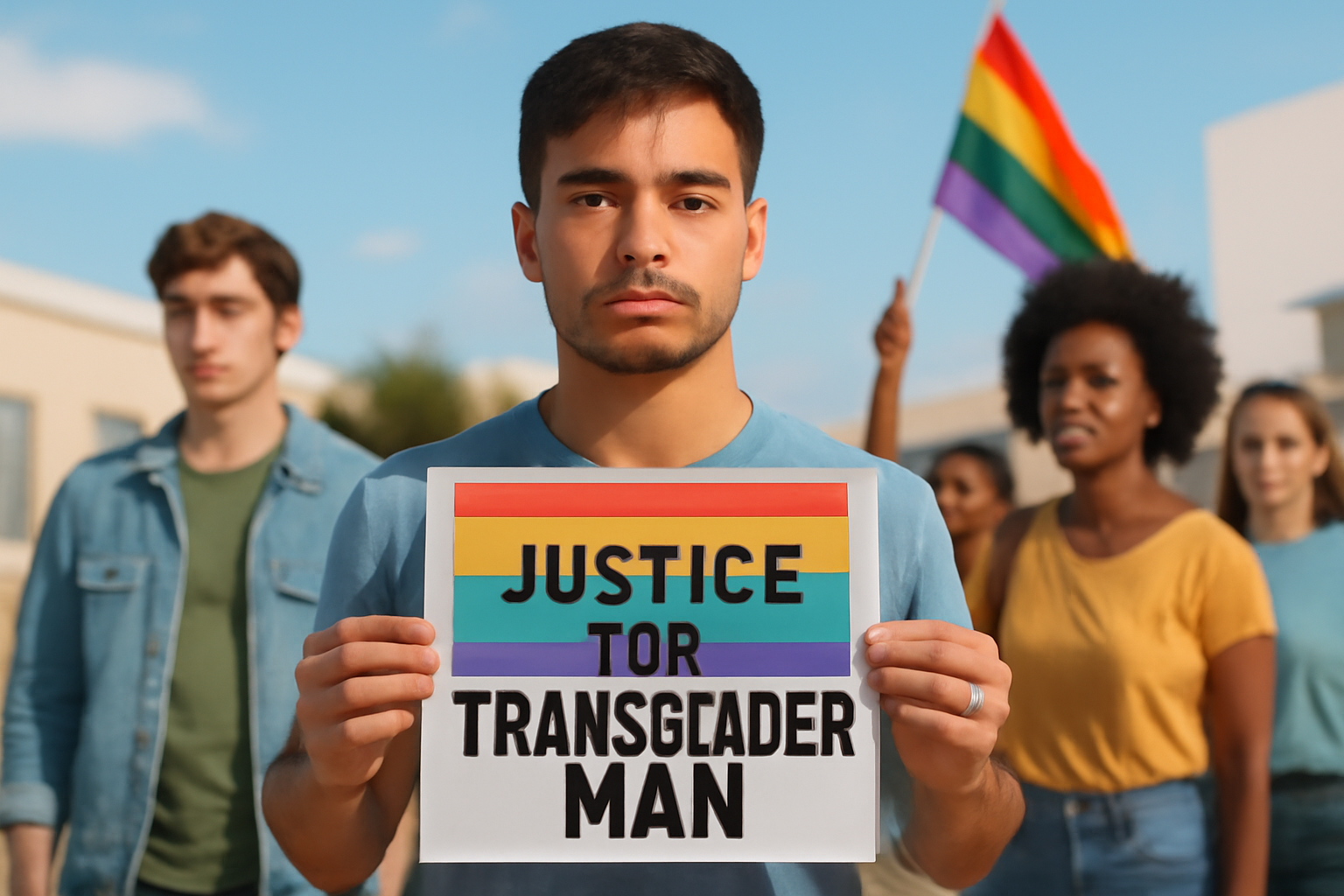
Community Demands Justice for Transgender Man
In a case that has shocked the nation and brought renewed calls for justice and equality, seven individuals have been formally charged in connection with the tragic death of a young transgender man. This incident, which has become a flashpoint for discussions on violence against transgender individuals, underscores the urgent need for systemic change and protection for the LGBTQ+ community.
The victim, known and loved by many in his community, was a vibrant and passionate advocate for transgender rights. His untimely death has left a profound void in the lives of his friends, family, and the broader community. As the case unfolds, many are asking how such a tragedy could occur and what measures can be taken to prevent future acts of violence against marginalized groups.
According to the charges filed by local authorities, the seven individuals have been accused of conspiracy in an attack that led to the victim's death. The investigation has revealed deeply troubling details about the nature of the crime, which appears to have been motivated by hatred and prejudice. This has sparked outrage and fear within the transgender community and allies, who are demanding swift justice and comprehensive policy changes to safeguard their rights and lives.
In response to the incident, community leaders and activists have organized vigils and rallies to honor the victim’s memory and to advocate for stronger protections for transgender individuals. These gatherings have drawn large crowds and widespread media attention, reflecting the widespread concern and urgency felt by many in the wake of this tragedy.
"This is not just an isolated incident," one activist said at a recent rally. "This is part of a larger pattern of violence that targets transgender people, particularly transgender people of color. We need to address this systemic issue at its roots and work towards creating a safer and more inclusive society for everyone."
The case has also prompted discussions about the role of law enforcement and the justice system in protecting vulnerable communities. Many are calling for reforms that would ensure hate crimes are thoroughly investigated and prosecuted, and that law enforcement officers receive training in cultural competency and sensitivity towards LGBTQ+ issues.
Additionally, there is a growing movement advocating for the inclusion of gender identity in hate crime legislation and for the implementation of policies that would recognize and address the specific challenges faced by transgender individuals.
As the trial moves forward, the LGBTQ+ community and its allies remain committed to seeking justice for the victim and ensuring that his death serves as a catalyst for meaningful change. Many hope that this case will shine a light on the pervasive discrimination and violence that transgender individuals face, and that it will inspire action from policymakers and the general public alike.
The advocacy and resilience displayed by the victim's loved ones and the community at large serve as a powerful reminder of the importance of solidarity and collective action in the fight for equality and justice.
In the words of one community leader, "We owe it to [the victim] and to all those who have suffered from similar violence to continue this fight. We must hold those responsible accountable, and work tirelessly to ensure that no one else has to endure such senseless acts of hatred."
The ongoing support from allies and advocates across the country demonstrates a commitment to remembering the victim not only for who he was, but for what his legacy can achieve in terms of rights and protections for all transgender individuals.
As the community mourns and heals, they are also channeling their grief into action, determined to turn their pain into progress. The hope is that through these efforts, future generations will be able to live with dignity, respect, and safety, regardless of their gender identity.
The trial will continue to draw attention, and the outcome is eagerly awaited by many who see it as a crucial moment in the ongoing struggle for trans rights and justice.
Related Posts
Triumphant Trans Woman Wins Legal Battle and Inspires Others to Stand Up for Their Rights
Breaking new ground: a landmark victory in transgender rights After battling in courtrooms and enduring endless challenges, Diana Portillo, a transgender woman, has secured a monumental victory in her decade-long fight against workplace discrimination. The result? Nearly $1 million awarded in a historic settlement. But this isn't just a win on paper—it represents a powerful precedent in combati [...]
Pride Month in Latin America: Protests and Demands for Equality
**Celebrating Pride and advocating LGBTQ+ rights in Latin America** Pride Month in Latin America was a lively mix where celebration met activism. Communities united, not just throwing a party but making a stand—demanding equality and pushing governments toward better protection and rights recognition. Throughout Latin America, pride events erupted in marches and cultural displays, each with a c [...]
Transgender Erasure Actions Implemented by National Park Service
```html Trump administration's impact on national park service and transgender recognition The Trump administration made notable moves in undermining transgender representation, which included directing agencies like National Park Service not include "T" and "Q" when they refered “LGBTQ” in any official communication. This move seems part a broader plan by this administration aimed at reducin [...]